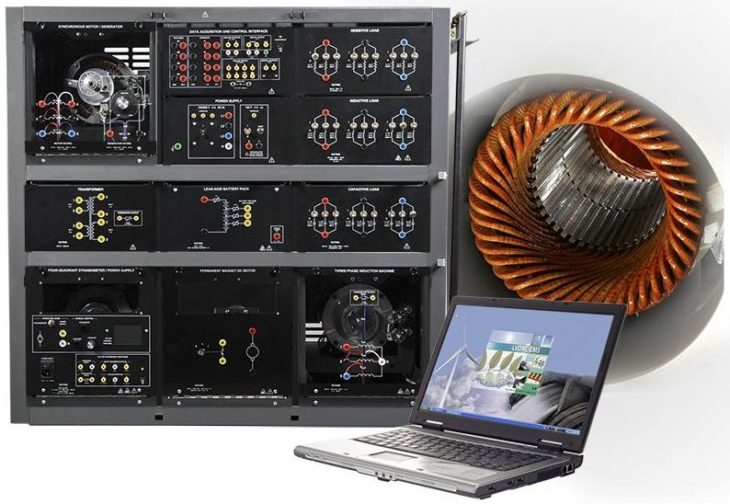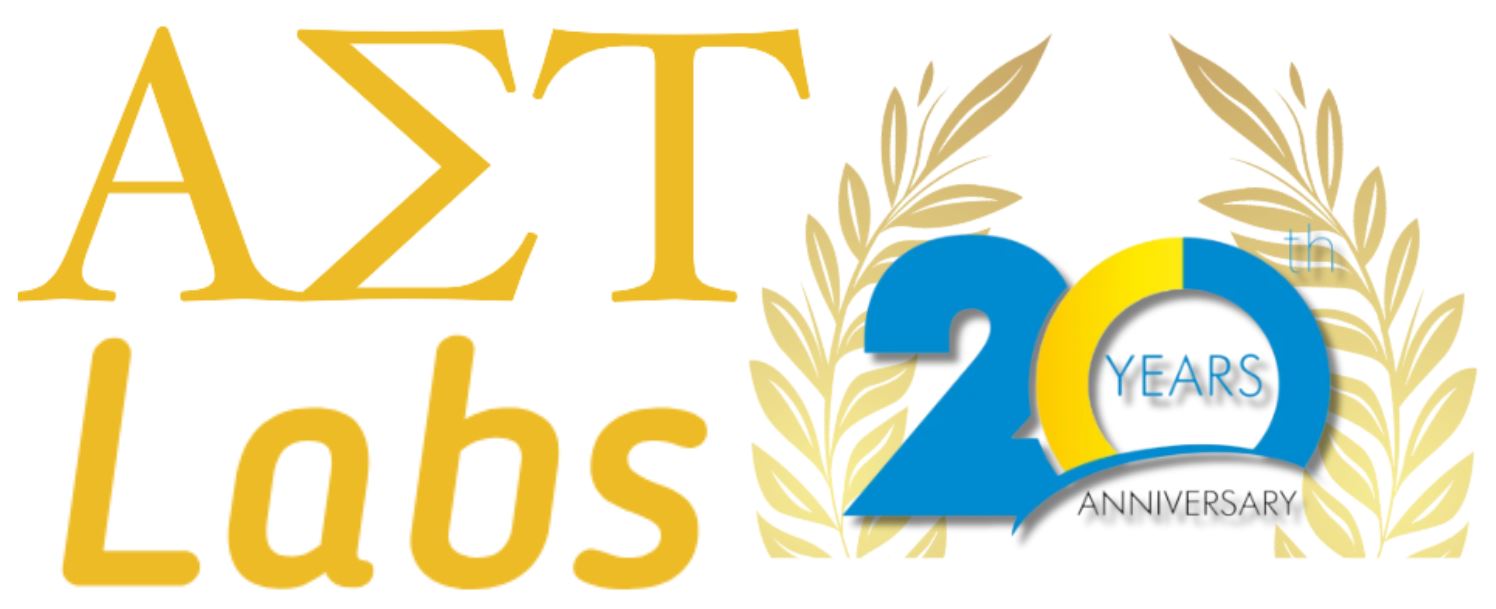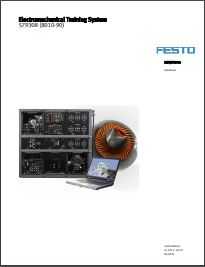Electric Machines and Power Circuits
The Electromechanical Training System combines a modular design approach with computer-based data acquisition and control to provide unrivaled training in electromechanical systems. Training is oriented toward today’s competence requirements, including electricity fundamentals (i.e., dc power circuits), single-phase and three-phase ac power circuits, power transformers, three-phase transformer banks, permanent magnet dc motors, three-phase rotating machines (induction machine and synchronous machine), and power factor correction.
The training system teaches the principles of three-phase rotating machines. To this end, students follow a complete curriculum that includes these topics:
- An introduction to the fundamentals of electricity, beginning with dc power circuits and ac power circuits.
- More advanced courses that cover different concepts and devices important to the study of three-phase rotating machines, such as single-phase and three-phase ac power circuits, single-phase and three-phase power transformers, and power factor correction.
- Courses that cover the operation of different rotating machines, such as permanent-magnet dc motors, induction machines, and synchronous machines.
- Optional courses that cover less common machines, such as conventional dc machines, universal motors, and single-phase induction motors.
Request a Quote

Key Features
The training system includes two highly versatile USB peripherals:
- Four-Quadrant Dynamometer/Power Supply, Model 8960-2. This module is used as a dc and ac power source. it can also be mechanically coupled to all rotating machines to operate as a prime mover or brake.
- Data Acquisition and Control Interface, Model 9063. This module gives access to a large variety of computer-based measuring instruments via the LVDAC-EMS software.
- The course curriculum of the Electric Power Technology Training Program is highly flexible and allows a multitude of different customized training solutions.
- The courseware includes student manuals and instructor guides with all the theory required to perform the hands-on experiments.
- and much more…


